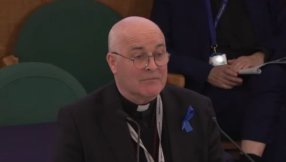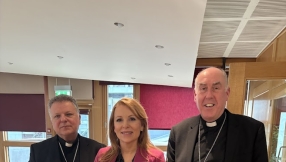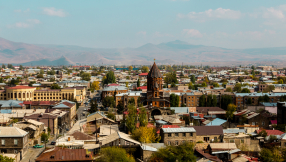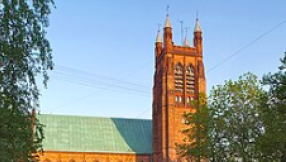Bishop of London Defends Church's Position in House of Lords
|PIC1|The British Humanist Association called earlier in the week for the number of bishops in the House of Lords to be radically reduced.
The head of the British Humanist Association has questioned the automatic presence of 26 Church of England bishops in the unelected second chamber of parliament as the Government deliberates House of Lords reforms.
Hanne Stinson, chief executive of the British Humanist Association, responded to ongoing Cabinet discussions by saying that, in the interests of fairness, members should be there on an agreed basis of merit, irrespective of religion, according to theological think-tank Ekklesia.
Ms Stinson said Monday: "The UK is the only Western democracy to give religious representatives the automatic right to sit in our legislature and this anachronism should be top of the list for reformers.
"Modern Britain is a society with a staggering diversity of religious and non-religious beliefs."
Now the BHA is calling for reforms to the House of Lords to include the removal of the bishops who sit in the Lords as of 'right'.
Bishop of London, the Rt Rev Richard Chartres, called for further debate on the issue, however, and said that discussion on the issue would be most efficient once a practical consultation process was laid down.
In particular, he said that the Lords were not just "defenders of sectarian narrow interests", but were "people, often from regions of the United Kingdom that are little represented in this House, who are in touch with a great range of opinions and institutions".
The House of Lords currently has 784 peers, consisting of Lords Spiritual (senior Church of England bishops) and Lords Temporal (lay peers). Law Lords (senior judges) also sit as Lords Temporal. Members of the chamber are unelected and were originally drawn from the nobility and allies of the monarchy in Britain.
Free Church Christians, among others, have long opposed the presence of Church of England bishops in the House of Lords, who were given seats because of the Church's Establishment under the Crown.
Ms Stinson said: "Continuing to privilege one denomination in this way is preposterous and it would be just as unacceptable to extend the privilege to all religions. If the proposed reform includes appointments to the Lords these should all be on personal merit - there could be no objection to the occasional bishop or other religious leader being appointed on that basis."
Opponents to the Church of England bishops in the Lords remain skeptical, however, that the Government will propose any change, Ekklesia reports.
Ms Stinson commented: "The fact that the Government faced up to religious pressure recently over gay adoption has given some people reason to hope that they will not be as intimidated by [such] lobbying in the future, but the U-turn on faith school admissions last year and the recent [concessions] over issues such as religion or belief discrimination are not reassuring."
Bishop Chartres said, however, that bishops played a vital role in the House of Lords and he even called for other faith groups to be represented.
He said: "We particularly welcome the emphasis on including leading members in Britain's faith communities, who have already made a distinguished contribution to the business of this House. The Lords Spiritual have been making this point for many years," The Church of England Newspaper has reported.













